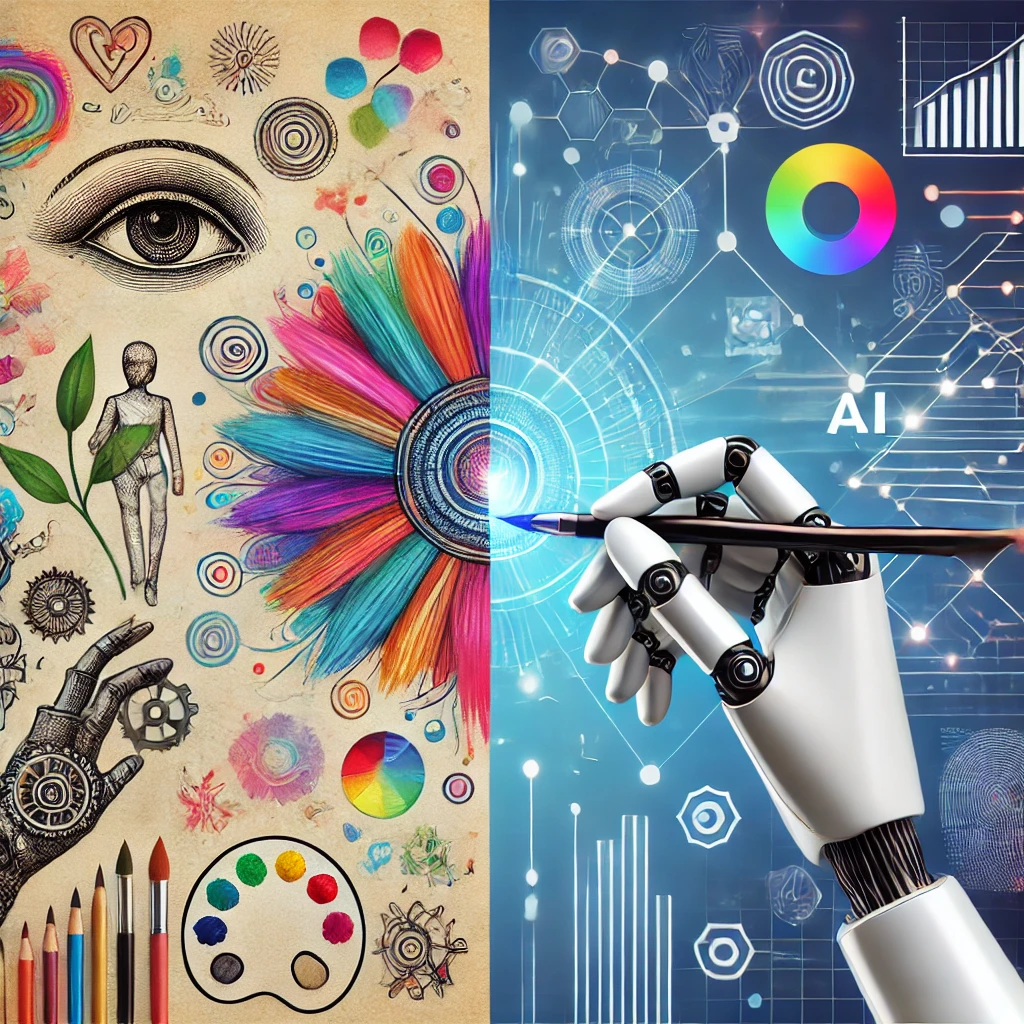How Agentic AI Doctors Are Revolutionizing Healthcare

Imagine a world where healthcare is predictive, not just reactive. According to Yunguo Yu, PhD, MD, this vision is becoming a reality with the advent of artificial intelligence in healthcare. Claims are processed in seconds, doctors receive real-time guidance during patient visits, and life-saving drugs are developed in years instead of decades.
This transformation is driven by agentic AI doctors, revolutionizing how healthcare is delivered. The potential of this technology is vast, and its impact is being felt across the industry.
The Current State of Healthcare Technology
As healthcare grapples with various challenges, technology is stepping in to bridge the gaps. The integration of advanced technologies like artificial intelligence in healthcare is transforming the way care is delivered.
Traditional Healthcare Challenges and Limitations
Despite advancements, traditional healthcare systems face numerous challenges, including inefficiencies in patient care, high costs, and limited access to quality healthcare services. These challenges are compounded by the increasing burden of chronic diseases and an aging population.
A study highlighted in a recent healthcare symposium underscored these issues, noting that
“the current healthcare system is strained, with many patients experiencing fragmented care and providers facing burnout.”
| Challenge | Description | Impact |
|---|---|---|
| Inefficiencies in Patient Care | Fragmented care, lack of coordination | Poor health outcomes |
| High Healthcare Costs | Increasing costs of treatments and medications | Financial burden on patients |
| Limited Access to Quality Care | Geographic and socio-economic barriers | Disparities in health outcomes |
The Need for Technological Innovation
The limitations of traditional healthcare systems underscore the need for technological innovation. Intelligent virtual doctors, powered by artificial intelligence, are at the forefront of this innovation. According to Yunguo Yu, PhD, MD, Agentic AI is helping payers achieve smarter systems through real-time claims processing and personalized preventive care.
The adoption of such technologies can lead to improved patient outcomes, enhanced patient engagement, and more efficient healthcare delivery.
Understanding Agentic AI Doctors
The concept of Agentic AI doctors is revolutionizing healthcare by introducing autonomous medical AI that can make decisions and adapt without human intervention.
Agentic AI doctors represent a significant advancement in medical technology, combining the capabilities of artificial intelligence with the need for precise and personalized healthcare.
Defining Agency in Medical Artificial Intelligence
Agency in medical artificial intelligence refers to the ability of AI systems to act autonomously, making decisions based on data and learning from interactions. According to Yunguo Yu, PhD, MD, “Unlike traditional AI, which often requires human oversight to function, Agentic AI operates autonomously. It learns dynamically, adapts to new information, and makes decisions in real time—without constant intervention.”
This autonomy is crucial in healthcare settings where timely and accurate decisions can significantly impact patient outcomes.
How Agentic AI Differs from Traditional Medical Software
Agentic AI differs from traditional medical software in its ability to learn, adapt, and make decisions autonomously. Two key features that highlight this difference are its autonomous decision-making capabilities and continuous learning and adaptation abilities.
Autonomous Decision-Making Capabilities
Agentic AI can analyze complex medical data, identify patterns, and make decisions without human input. This capability is particularly useful in emergencies where quick decisions are critical.
Continuous Learning and Adaptation
Unlike static traditional software, Agentic AI continuously learns from new data and adapts to changing medical landscapes, ensuring that its decisions remain relevant and effective over time.
By integrating these advanced capabilities, Agentic AI doctors are poised to transform the healthcare industry, enhancing both the efficiency and effectiveness of medical care.
The Technology Powering Agentic AI Doctors
Agentic AI Doctors leverage a combination of innovative technologies to deliver high-quality healthcare solutions. These advanced AI healthcare solutions are transforming the medical landscape by providing more accurate diagnoses and personalized treatment plans.
The technological backbone of Agentic AI Doctors includes several key components. One of the primary technologies is Advanced Machine Learning Architectures.
Advanced Machine Learning Architectures
Advanced machine learning architectures enable Agentic AI Doctors to analyze vast amounts of medical data efficiently. These architectures are designed to learn from data, identify patterns, and make predictions or decisions with minimal human intervention. Techniques such as deep learning and neural networks are pivotal in this regard.
For instance, deep learning algorithms can be trained on large datasets of medical images to detect abnormalities such as tumors or fractures. This capability significantly enhances diagnostic accuracy and speed.
| Technology | Application | Benefit |
|---|---|---|
| Deep Learning | Medical Image Analysis | Enhanced Diagnostic Accuracy |
| Neural Networks | Predictive Modeling | Personalized Treatment Plans |
Natural Language Processing for Medical Communication
Another crucial technology powering Agentic AI Doctors is Natural Language Processing (NLP). NLP enables these AI systems to understand and generate human-like text, facilitating effective communication between patients and healthcare providers.
NLP can be used to analyze patient symptoms, medical histories, and other relevant information to provide accurate diagnoses and treatment recommendations. It also enables the creation of smart medical avatars that can interact with patients in a more human-like manner.
Computer Vision and Medical Imaging Analysis
Computer Vision is another vital technology that enables Agentic AI Doctors to analyze medical images such as X-rays, MRIs, and CT scans. By applying computer vision techniques, these AI systems can detect abnormalities, measure the sizes and shapes of organs or tumors, and assist in diagnosis.
The integration of these technologies not only enhances the capabilities of Agentic AI Doctors but also paves the way for more efficient and effective healthcare delivery.
Key Applications of Agentic AI in Clinical Settings
Clinical settings are witnessing a significant shift with the advent of Agentic AI. This technology is being integrated into various aspects of healthcare delivery, enhancing patient outcomes and the overall quality of care. According to Yunguo Yu, PhD, MD, Agentic AI is transforming healthcare delivery, including diagnostic assistance, treatment planning, and remote patient monitoring.
Diagnostic Assistance and Decision Support
Agentic AI is revolutionizing diagnostic processes by providing healthcare professionals with advanced decision support tools. These intelligent systems can analyze vast amounts of medical data quickly and accurately, helping doctors identify potential diagnoses that might have been overlooked.
Early Disease Detection
Agentic AI algorithms can detect early signs of disease by analyzing patterns in medical imaging and patient data. This enables healthcare providers to intervene earlier, potentially improving patient outcomes.
Rare Disease Identification
For rare diseases, which are often challenging to diagnose, Agentic AI can assist by comparing patient symptoms and medical history against a vast database of known conditions, aiding in the identification of these elusive diagnoses.
Treatment Planning and Personalized Medicine
Agentic AI is also pivotal in treatment planning, allowing for a more personalized approach to medicine. By analyzing a patient’s genetic profile, medical history, and lifestyle, Agentic AI can help doctors tailor treatment plans to the individual, potentially leading to more effective care.
Remote Patient Monitoring and Telehealth Integration
The integration of Agentic AI with telehealth services is enhancing remote patient monitoring. Intelligent virtual doctors can continuously monitor patients’ vital signs and health status, alerting healthcare providers to any concerning changes.
| Application | Description | Benefits |
|---|---|---|
| Diagnostic Assistance | Analyzes medical data for accurate diagnoses | Improved diagnostic accuracy, early disease detection |
| Treatment Planning | Personalizes treatment based on patient data | More effective treatment plans, better patient outcomes |
| Remote Patient Monitoring | Continuously monitors patient health remotely | Enhanced patient care, timely interventions |
As Agentic AI continues to evolve, its applications in clinical settings are expected to expand, further transforming the healthcare landscape. With its potential to improve diagnostic accuracy, personalize treatment, and enhance remote monitoring, Agentic AI is poised to revolutionize the way healthcare is delivered.
How Agentic AI Doctors Are Transforming Patient Care
Agentic AI Doctors are transforming the healthcare landscape by improving diagnostic accuracy, reducing medical errors, and enhancing patient engagement. According to Yunguo Yu, PhD, MD, Agentic AI is making significant strides in these areas, ultimately leading to better patient outcomes.
The impact of Agentic AI on patient care is multifaceted. One of the primary benefits is the improvement in diagnostic accuracy and speed. Agentic AI Doctors can analyze vast amounts of medical data quickly, enabling healthcare professionals to make more informed decisions.
Improving Diagnostic Accuracy and Speed
Agentic AI’s advanced machine learning capabilities allow it to detect patterns and anomalies in medical data that may elude human clinicians. This results in more accurate and timely diagnoses, which are critical in providing effective treatment.
- Enhanced image analysis for diagnostic imaging
- Rapid processing of large datasets for pattern recognition
- Improved predictive analytics for patient outcomes
Reducing Medical Errors and Improving Safety
Agentic AI Doctors play a crucial role in reducing medical errors by providing healthcare professionals with real-time, data-driven insights. This helps in minimizing the likelihood of misdiagnosis and inappropriate treatment.
- Real-time alerts for potential medication errors
- Automated checks for inconsistencies in medical records
- Evidence-based recommendations for treatment plans
Enhancing Patient Engagement and Experience
Agentic AI is not only improving clinical outcomes but also enhancing patient engagement and experience. By providing patients with personalized information and support, Agentic AI Doctors help patients take a more active role in their care.
Some key aspects of this enhanced patient engagement include:
- Personalized patient education materials
- Automated reminders and follow-up care instructions
- AI-driven patient portals for better communication
Real-World Implementation and Success Stories
The healthcare landscape is witnessing a significant transformation with the integration of Agentic AI doctors. Leading hospital systems are pioneering the use of Agentic AI-powered physician assistants, transforming healthcare delivery and setting new standards for patient care.
Hospital Systems Pioneering AI-Powered Physician Assistants
Several prominent healthcare institutions have successfully implemented Agentic AI-powered physician assistants, enhancing their clinical workflows. For instance, Yunguo Yu, PhD, MD, has shared examples of hospital systems that have adopted this technology to improve diagnostic accuracy and streamline clinical decision-making. These pioneering efforts demonstrate the potential of Agentic AI to revolutionize healthcare.
One notable example is the implementation of AI-powered physician assistants in large hospital networks, where they have been used to analyze medical images, diagnose conditions, and develop personalized treatment plans. This has not only improved the efficiency of healthcare services but also enhanced patient outcomes.
Measurable Outcomes and Healthcare Improvements
The implementation of Agentic AI doctors has led to significant improvements in healthcare outcomes. Studies have shown that AI-powered physician assistants can reduce diagnostic errors, improve patient engagement, and enhance the overall quality of care. For example, a study on the use of Agentic AI in clinical settings found that it improved diagnostic accuracy by up to 25% and reduced treatment times by 30%.
These measurable outcomes underscore the potential of Agentic AI to drive meaningful improvements in healthcare delivery. As more hospital systems adopt this technology, we can expect to see further enhancements in patient care and clinical outcomes.
Economic Impact of Autonomous Medical AI
The integration of Autonomous Medical AI is transforming the healthcare landscape, with significant economic implications. As healthcare systems worldwide grapple with rising costs and resource constraints, Autonomous Medical AI offers a promising solution.
One of the primary economic benefits of Autonomous Medical AI is its potential to reduce healthcare costs and optimize resource allocation. By streamlining clinical workflows and improving diagnostic accuracy, Autonomous Medical AI can help reduce the economic burden of healthcare.
Cost Reduction and Resource Optimization
Autonomous Medical AI can lead to significant cost savings by:
- Reducing the need for redundant diagnostic tests
- Improving patient outcomes through timely interventions
- Streamlining clinical decision-making processes
Moreover, Autonomous Medical AI can help optimize resource allocation by identifying high-risk patients and prioritizing their care, thus ensuring that resources are utilized efficiently.
Market Growth of Smart Medical Avatars
The market for smart medical avatars, a key component of Autonomous Medical AI, is expected to experience rapid growth in the coming years. Advanced AI healthcare solutions are driving this growth, with increasing adoption in clinical settings.
The growth of the smart medical avatars market is driven by the increasing need for personalized healthcare solutions and the expanding capabilities of AI in healthcare.
Challenges and Ethical Considerations
The emergence of Agentic AI in medical practice is accompanied by various challenges and ethical issues that need to be addressed. As artificial intelligence healthcare continues to evolve, it’s crucial to consider the implications of integrating robotic healthcare professionals into clinical settings.
Data Privacy and Security Concerns
One of the significant challenges associated with Agentic AI doctors is ensuring the privacy and security of patient data. Yunguo Yu, PhD, MD, acknowledges that data privacy and security concerns are paramount as Agentic AI systems handle sensitive medical information. Implementing robust data protection measures is essential to maintain patient trust and comply with regulatory requirements.
Regulatory Hurdles for Robotic Healthcare Professionals
The introduction of Agentic AI doctors also raises regulatory challenges. There is a need for clear guidelines and standards to govern the development, deployment, and use of robotic healthcare professionals. Regulatory bodies must work closely with healthcare providers and technology developers to establish frameworks that ensure safety, efficacy, and accountability.
Balancing Human Expertise with Advanced AI Healthcare Solutions
Another critical consideration is striking a balance between human expertise and AI-driven solutions. While Agentic AI can significantly enhance diagnostic accuracy and treatment planning, it’s essential to ensure that these systems complement rather than replace human clinicians. By doing so, we can leverage the strengths of both human and artificial intelligence to improve patient outcomes and enhance the overall quality of care.
Addressing these challenges and ethical considerations is crucial for the successful integration of Agentic AI doctors into healthcare systems. By proactively tackling these issues, we can harness the full potential of artificial intelligence healthcare to revolutionize medical practice.
The Future of Agentic AI Doctors
The future of healthcare is being shaped by Agentic AI Doctors, revolutionizing the way medical care is delivered. According to Yunguo Yu, PhD, MD, the future of Agentic AI holds significant promise for transforming healthcare. As these intelligent systems continue to evolve, they are likely to have a profound impact on the healthcare industry.
Emerging Technologies and Capabilities
Agentic AI Doctors are expected to incorporate emerging technologies such as advanced machine learning architectures and natural language processing. These technologies will enable Agentic AI Doctors to become even more sophisticated, allowing for more accurate diagnoses and personalized treatment plans.
The integration of computer vision will further enhance the capabilities of Agentic AI Doctors, enabling them to analyze medical images and provide more accurate diagnoses.
| Technology | Application | Benefit |
|---|---|---|
| Advanced Machine Learning | Diagnostic Accuracy | Improved Patient Outcomes |
| Natural Language Processing | Patient Communication | Enhanced Patient Experience |
| Computer Vision | Medical Imaging Analysis | Increased Diagnostic Accuracy |
Predicted Impact on Global Healthcare Systems
The predicted impact of Agentic AI Doctors on global healthcare systems is significant. These systems are expected to improve healthcare outcomes, reduce costs, and enhance the overall quality of care. As Agentic AI Doctors become more prevalent, they are likely to become an integral part of healthcare systems around the world.
Conclusion
As explored in the previous sections, Agentic AI Doctors are transforming the healthcare landscape with their advanced capabilities. According to Yunguo Yu, PhD, MD, Agentic AI has the potential to revolutionize healthcare by improving patient outcomes and enhancing the quality of care. The integration of autonomous medical ai is expected to significantly impact clinical settings, making advanced ai healthcare solutions more accessible.
The future of healthcare is likely to be shaped by the continued development and implementation of Agentic AI. With its potential to improve diagnostic accuracy, reduce medical errors, and enhance patient engagement, autonomous medical ai is poised to become a critical component of modern healthcare systems. As advanced ai healthcare solutions continue to evolve, we can expect to see significant improvements in patient care and outcomes.













